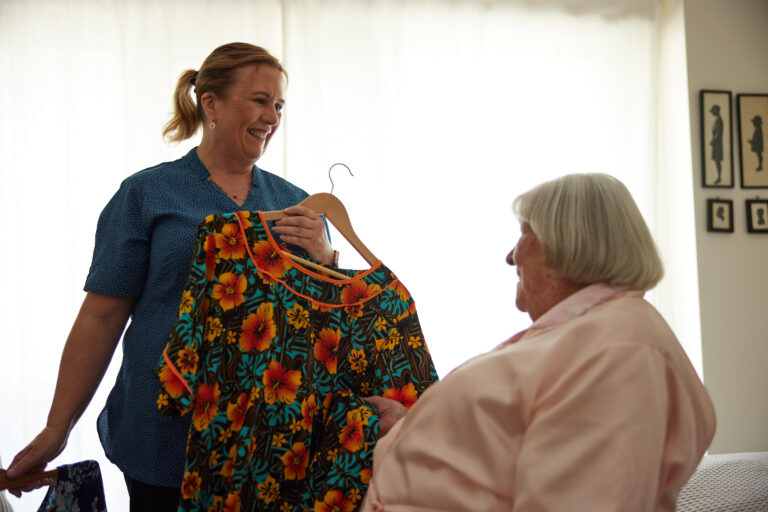A guide to assistive technology for ageing in place
If you or your loved one wishes to stay in your home for as long as possible, you may want to consider how assistive technology can help you age in place.

Many older people today are choosing to stay at home and live independently for longer or ‘age in place’. If you or your loved one wishes to stay in your home for as long as possible, you may want to consider how assistive technology can help you age in place.
So, what is assistive technology?
Assistive technologies are systems and devices that are designed to help a person age independently at home in safety and comfort.
From low-tech grabbers to high-tech monitoring systems, assistive technologies can monitor, support or improve daily living for seniors who wish to live in the community for as long as possible.
Daily Care Assistive Technologies
There is a range of assistive technologies that can help make life at home easier:
Low-tech assistive devices
- Hand-held grabbers that allow you to reach up or down to pick up items, such as a jar from a shelf or a shoe from the floor
- Lever handles on faucets and doors if you have trouble gripping and turning
- A variety of gadgets that help with simple daily tasks including can and jar openers, long-handle dustpans, electric knives and even avocado peelers!
Personal care assistive devices
Devices that assist you with daily hygiene and grooming tasks can also make life more comfortable!
- A shower chair can make a huge difference if you’re unable to stand for long periods of time, and it can help to avoid the risk of falls in the shower
- Long-handle bathing sponges
- Zipper pulls, button hook aids, and long-handle shoehorns can make getting dressed much easier.

Mobility Assistive Technologies
Mobility assistive aids are a great investment if you have some trouble moving around, as they can reduce pain and stress in joints and reduce the risk of falling:
- Walking canes
- Orthotic devices
- Wheelchairs
- Walkers
- Crutches
- Electric scooters
- Guide dogs
- Up-lift seat assists.
If necessary, modifications to the home can assist with mobility. Ramps, stair elevators and hand rails can make an area easier to navigate, especially where there are changes in surface heights.
Communication Assistive Technologies
Communication assistive devices are designed to improve your ability to hear, see and speak, helping with day to day interactions and keeping you connected with family and friends around the world:
- Hearing assistive technologies including hearing aids, television headsets and telephone amplifiers
- Voice command and speech generating devices
- Speech generating devices
- Magnifiers
- Mobile phones, tablets and computers specially designed for older adults that have large text screens, large buttons and simple navigation systems.
Safety Assistive Technologies
From grab bars in the bathroom to pill organisers to home automation where lights come on as you enter a room, safety assistive technologies can reduce the chance of accidents in your home and increase overall home safety.
Wearable medical alert systems are gaining increased popularity, and are offered by a number of providers. These devices provide health monitoring and around-the-clock emergency response, and can come fitted with a panic button and fall detection. Most systems use a landline and consist of a base unit and wearable help pendant, but there are also GPS-based mobile options for people on the go.
The Essence emergency response system is available across IRT retirement villages, while all IRT residents and customers can access the free IRT Connect app to manage their services, stay connected with family, and easily contact IRT.

In need of some assistance in your home?
We’ve been supporting older Australians for more than 30 years with home care services offered throughout NSW, Qld and ACT. Find out how you can keep living independently at home with a little help from IRT.
Find out moreYou may also like
Your guide to moving into a retirement village
When the decision to move into a retirement village has been made, the thought of packing up your old home and moving in to your…
Introduction to retirement villages
A retirement village is the perfect way to downsize your home and upsize your life.


